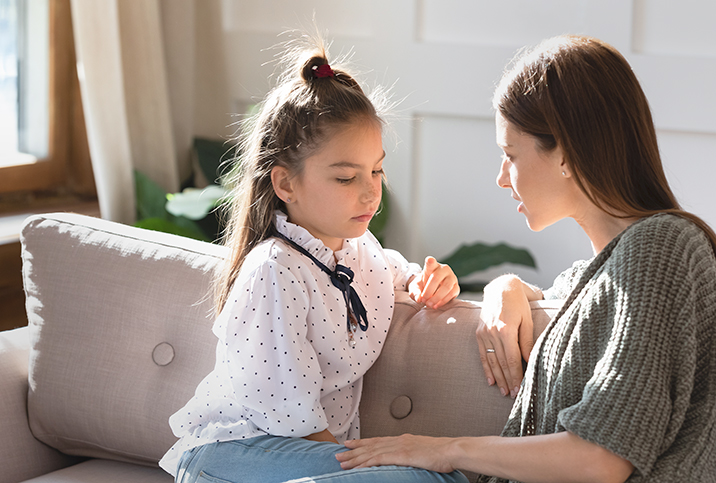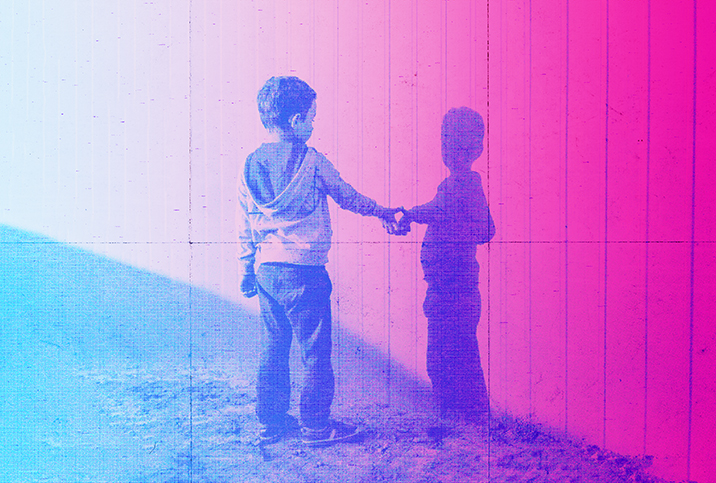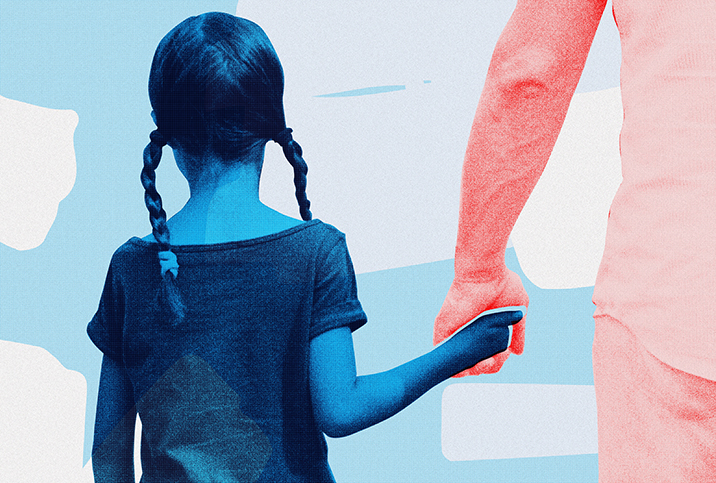Between the Pages: 'Creating Cultures of Consent'

Consultant, educator, sexologist and victim advocate Laura McGuire, Ed.D., spoke with Giddy about their book, "Creating Cultures of Consent: A Guide for Parents and Educators," published by Rowman & Littlefield.
"Creating Cultures of Consent" is intended to help parents and teachers unlearn harmful narratives regarding sexual consent, boundaries and relationships. In their place, McGuire presents actionable guidelines for conversations, curriculum and activism. The guidebook makes a compelling case for how teaching consent at both school and home can help end rape culture. In 2015, McGuire served as the first sexual violence prevention and education program manager at the University of Houston, and in 2017, they became the first victim advocate/prevention educator at the U.S. Merchant Marine Academy. McGuire currently works as a full-time consultant and expert witness at the National Center for Equity & Agency.
In this exclusive interview, McGuire explains the meaning of affirmative consent and provides tips for parents on teaching their children about consent.
Editor's note: This interview has been edited for length and clarity.
What led you to write this book?
McGuire: What inspired it was wanting to have more in-depth conversations about what consent is, what it looks like in day-to-day life and how it plays out with all the other areas, like safety, autonomy and human rights. While there were books on what consent means for dating and sexual situations, I wasn't finding a lot of resources for the parents and teachers who would be facilitating these conversations with young people.
What is affirmative consent?
Affirmative consent really is going beyond what many of us grew up with, "No means no," and exploring how the presence of an enthusiastic, clear and ongoing "yes" would impact all interpersonal communication. It's not just about the absence of a "no." It's not just about someone in a sexual situation saying, "Yeah, OK, I'll do that." It's really about transforming the way we talk to each other, whether it's in text, email or an intimate situation, and making sure we know what people are agreeing to and not agreeing to.
What are the characteristics of rape culture and what needs to happen to make it a rape-free culture?
Rape culture is such a strong [phrase] that a lot of people when they hear it will say, "Oh, I didn't grow up with that; that sounds terrible." It is very subversive, very subliminal. It's hard for many people to identify it at first. It's not necessarily a culture where there's explicit violence, but there are behaviors and beliefs and concepts that support cultures of violence from having a foundation where they can exist.
It is the way we blame victims for what happens to them. It is the way we gaslight each other and say, "I don't know if that's really what happened" or "Do you remember it correctly?" It's the way we assume certain people are innocent because they have a high place in society, and [think] certain people must have brought things upon themselves because they make poor choices. It is all those things.
What we're trying to do is really look at how we challenge that, which is to create a culture of consent, a culture where we believe victims, where we don't assume that just because someone has certain social markers they wouldn't be capable of causing harm. We don't let things create that environment where violence can fester. From the things we find funny to the lyrics we listen to, to the way we talk about stories in the news, all of those things really have to shift in order for us to have a culture that wouldn't be safe for perpetrators to exist in.
What is the first piece of advice you give parents regarding teaching their children about consent?
Primarily, we want to make sure children are not going to cause harm to someone else and also to help protect them from experiencing harm. If someone ever does hurt them, they understand their rights and they're safe to share that with us. That's step number one. Number two is to listen to yourself and say, "What are some of these messages that are hard for me to digest because they're so different than what I grew up with?"
The next step is to make sure this isn't just a conversation we have with our child and say, "The world is a scary place and I don't want you to go to jail or have someone assault you." That's super-scary, and it's just going to cause the child to want to shut down. That's often where parents have good intentions but a really poor impact. Instead of that, we want to say, "Let's just talk about this as situations come up." How do we identify respecting people's boundaries? How do we create boundaries that are healthy for ourselves?
If we notice, for example, when a child is young and they're playing with a friend and the friend says, "I really want to play this game," and the other child says, "I don't know," they try to convince them and say, "Please, please, please." Having a conversation in a situation like that about, well, this person isn't consenting, you can tell they're uncomfortable, we don't push people into a "yes." That's not a real yes. That way, when they get older, it's very natural to talk about that in other contexts.
You write that schools and parents must partner in order to effectively educate kindergarten through 12th-grade youth on consent. What are some ways they can do that?
I think one without the other is not going to work very well. And so, it is super-important we make sure we're all doing these things, whether it's education, affirming messages or discussing these scenarios as they come up in real life. We're doing them as a team. Where we see a lot of that disconnection is parents might not understand what their students are going to be learning. When they hear they're getting consent education, because they didn't get it, that seems scary. Or teachers might feel like they're not sure how to explain this so that when the child goes home, they're not going to get a [different] message.
The more we can come together and do this work, the more effective it's going to be. A lot of it is transparency. We're seeing this across the board in education. There are all different kinds of education that people are getting riled up about because they're not fully understanding what the topic is and what it means for their child.
The first thing is: Parents who want consent education in the schools and want this message reiterated in the classroom need to advocate at the school district level or with the principal and say, "This is something we value and want available." Then there should also be a parent session before any kind of education, so they understand what it is their student is and is not learning. Lastly, follow up with exercises so that parents can continue these discussions at home, so they don't feel disjointed from what's being discussed in the classroom.


















